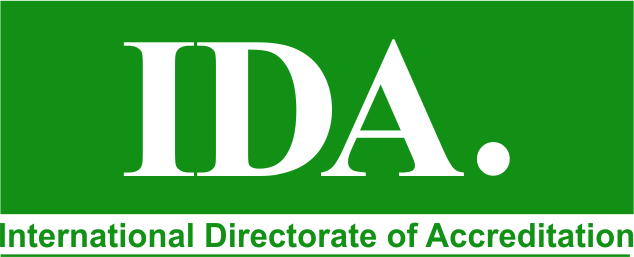Proficiency Testing Provider

About
Proficiency testing involves the use of inter-laboratory comparisons for the determination of laboratory performance. The need for ongoing confidence in laboratory performance is not only essential for laboratories and their customers, but also for other interested parties such as regulators and accreditation bodies.
Proficiency testing providers play an important role in the value chain for assurance of products and services. Their proficiency testing programmes should be properly designed and statistically robust, so that the benchmarking of participants’ performance is properly conducted, and the participants can monitor trends and identify gaps in their own performances for corrective actions and improvements.
Third-party endorsements of proficiency testing providers’ capabilities are needed to demonstrate they have met international standards. IDA can provide that recognition so as to give credibility to their programmes and boost confidence in customers.
Accreditation Criteria
The primary standard used for accreditation of proficiency testing providers is ISO/IEC 17043 (Conformity Assessment – General Requirements for proficiency testing). The requirements in this standard apply to areas such as management, planning and design, personnel, assuring quality and confidentiality for organizing PT programme.
Technical note, PTP 001 – Requirements for the Application of ISO/IEC 17043, will be used in conjunction with the standard as assessment criteria. It provides the policies and guidance for organizations in their application of ISO/IEC 17043: 2010.
This is a voluntary scheme that is open to all facilities. IDA accreditation is only granted for the specific scope(s) put up for accreditation.
Benefits
Being an accredited PTP gives the organisation credibility for their PT services. Once a MRA for PTP is established, this credibility goes beyond the local market.
In addition, with the pool of accredited local PTPs available, customers such as laboratories will have access to more affordable and reliable sources of PT programmes.
Process
A facility seeking recognition for compliance with ISO/IEC 17043 should apply to IDA, stating its proposed scope and type of PT programme for recognition. It has to provide key information on:
a) Management structure
b) Key responsibilities of the personnel and units
c) Persons in charge of PT programme(s)
d) Quality manual and standard operating procedures, among other documents
IDA will do a documentation review before the on-site assessment, which is done to determine compliance with ISO/IEC 17043. The facility must complete at least one PT programme for the applied scope before the assessment. The on-site assessment will be conducted by a lead assessor accompanied by relevant technical experts as determined by IDA. Assessment may take more than one day, depending on the scope and size of the facility.
Once a facility has met all criteria of ISO/IEC 17043, IDA will issue a Certificate of Accreditation to the facility, with a schedule detailing the types of PT programmes under the scope of accreditation. The time taken for a facility to be accredited may range from three to six months, depending on the readiness of the facility in meeting the accreditation requirements as well as the type and complexity of the PT programmes.
Surveillance assessment will be conducted annually and reassessment will be conducted every four years for the renewal of accreditation.
OUR SERVICES
THE IDA
ACCREDITATION
PROCESS

